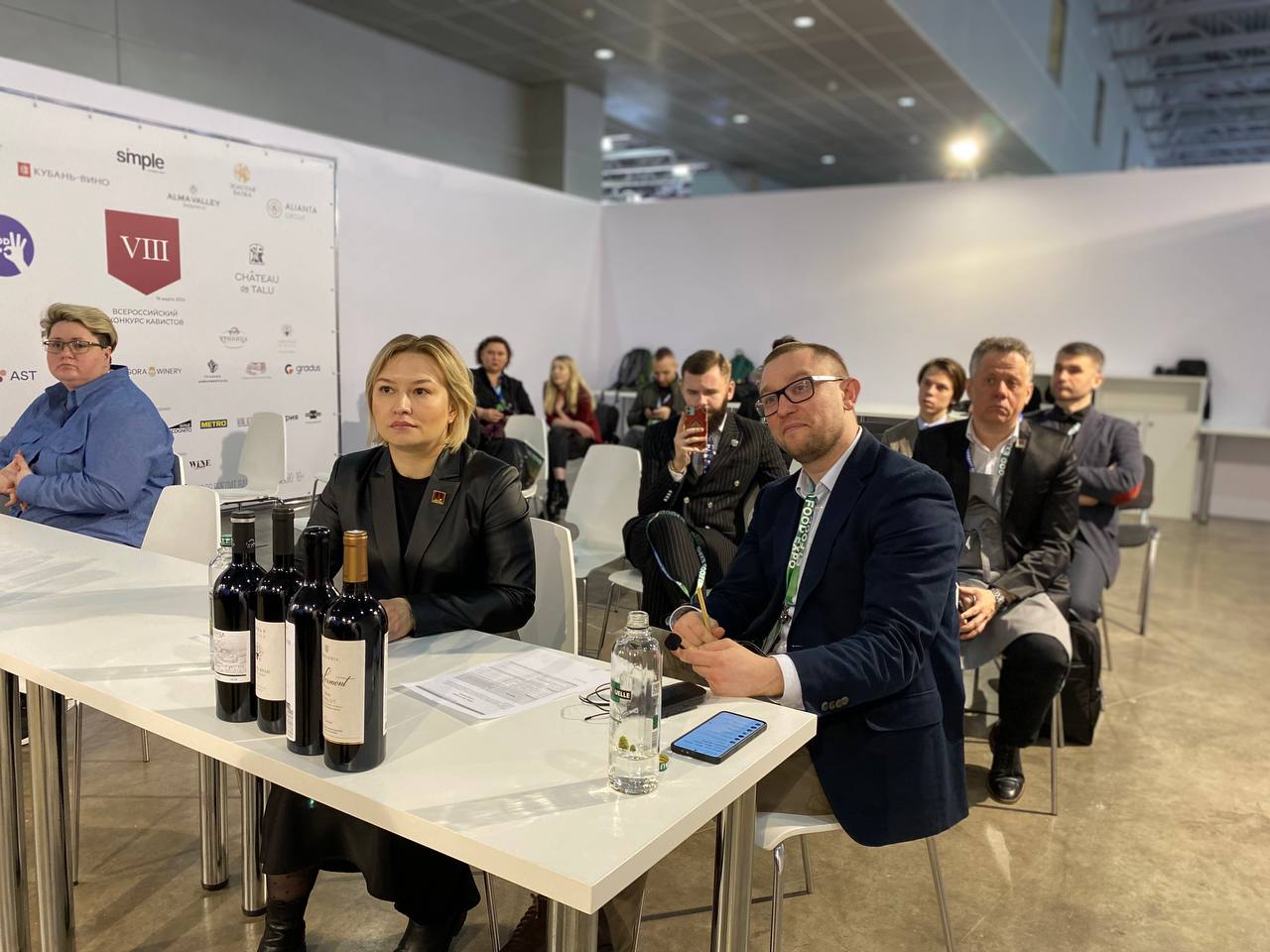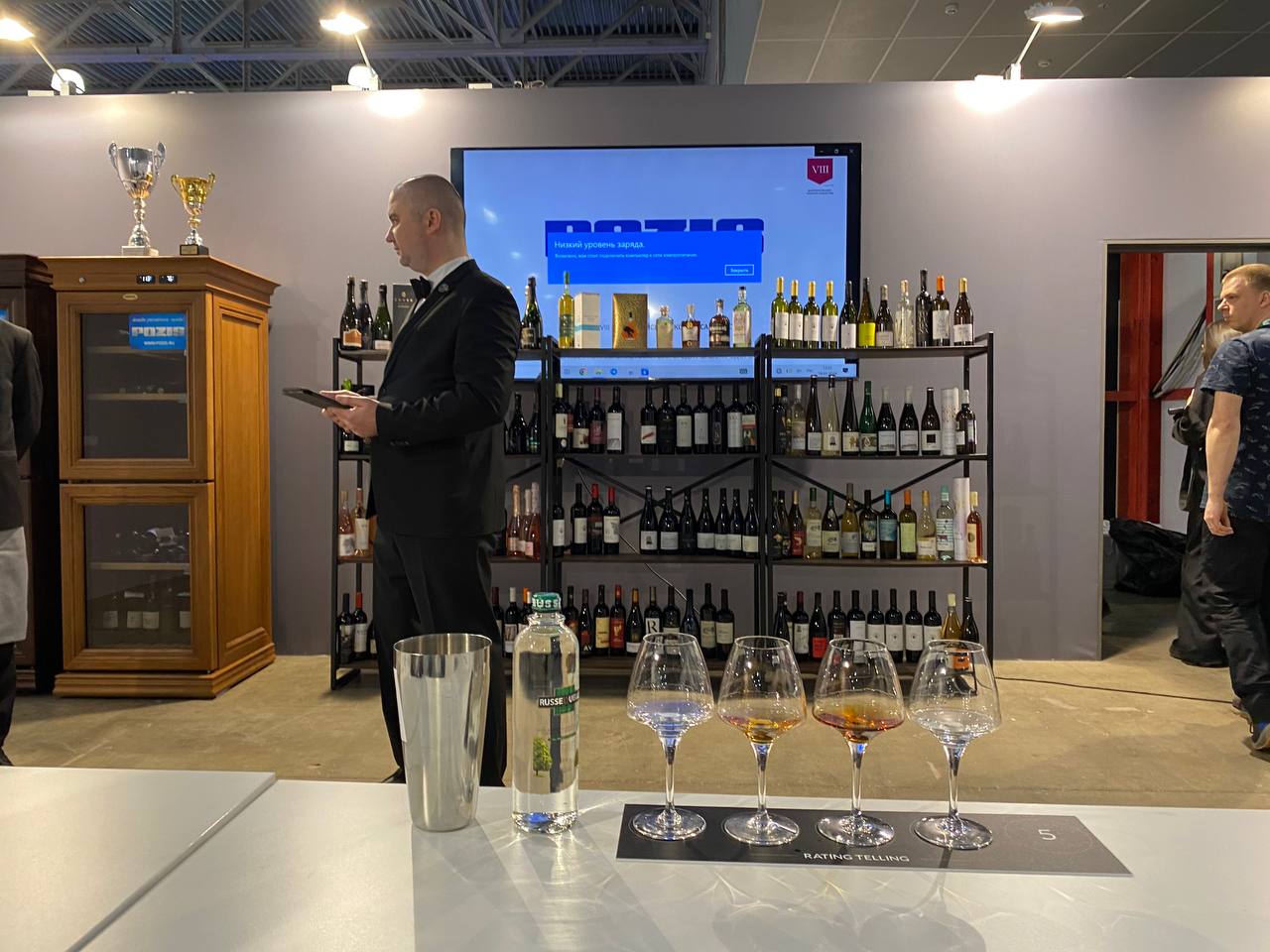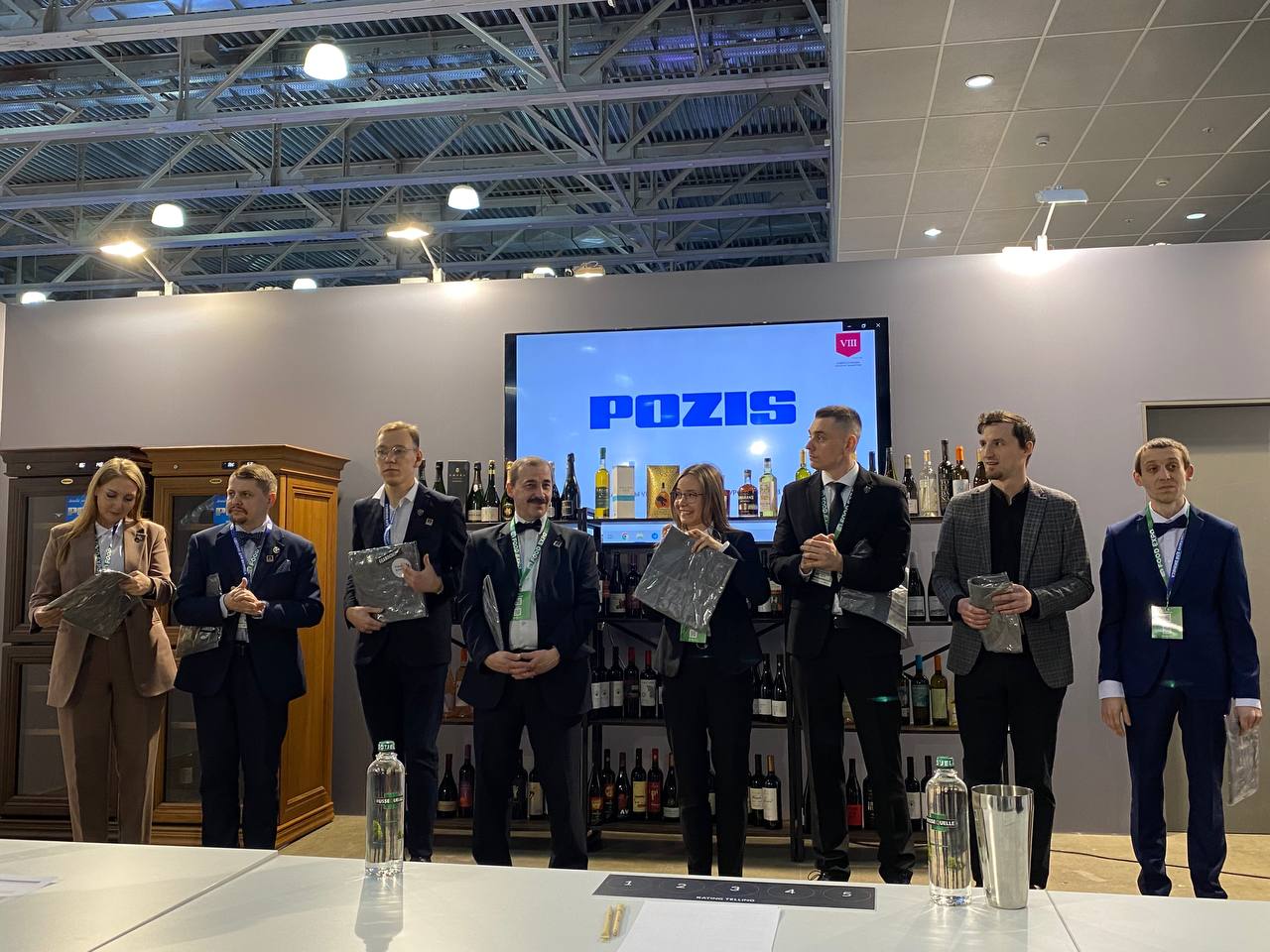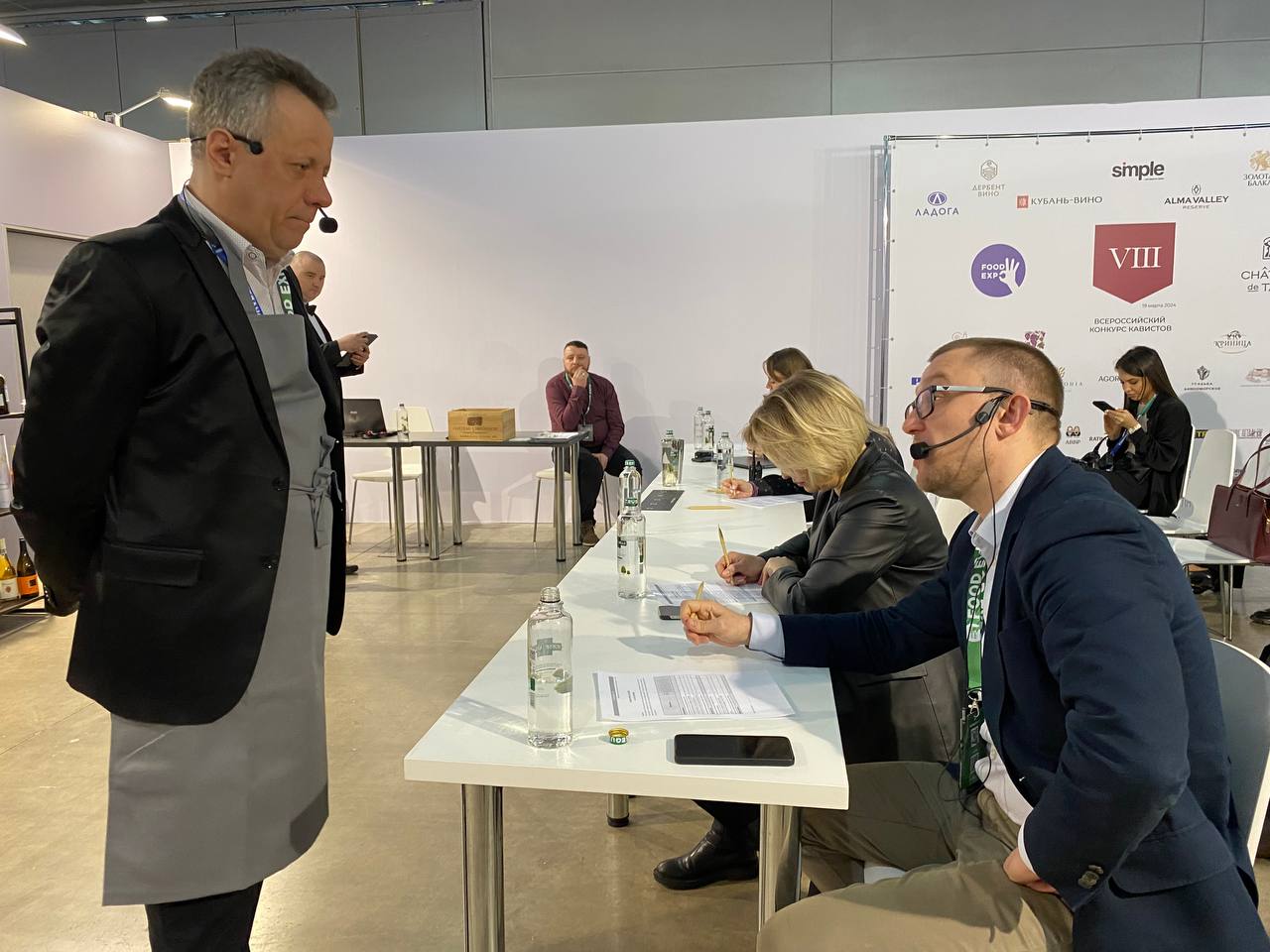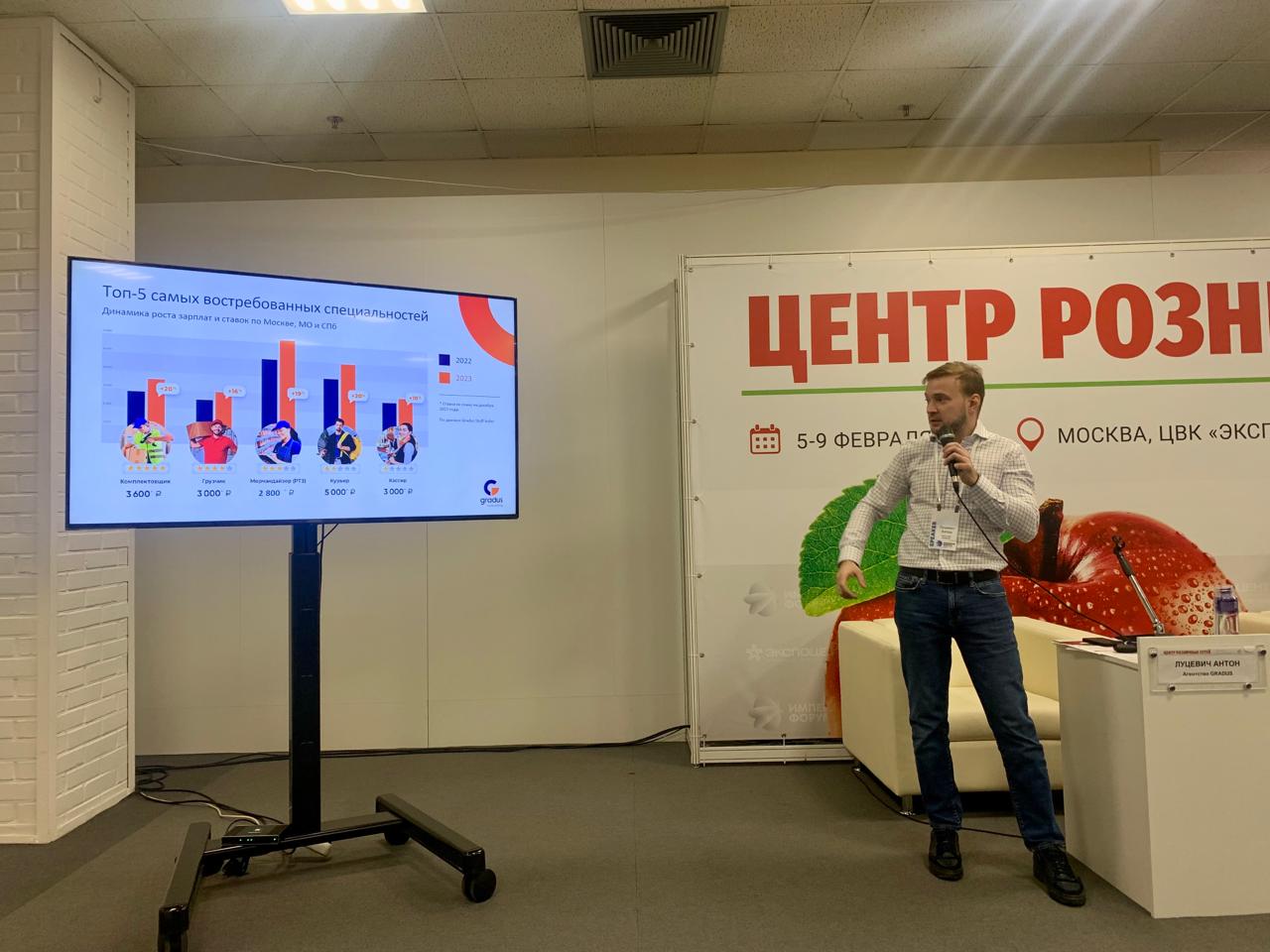At the last FOOD Expo, which is a key event in the retail and HoReCa sectors, more than 20,000 participants and 350 companies from all over the world gathered to present their products and take part in an extensive business program.
Evgeny Akentiev from Gradus took part in business discussions and spoke on the topic of personnel shortages in the wine sales industry.
As Evgeny, Director of Development and head of merchandising at Gradus, emphasized, selling wine is an art that requires not only knowledge, but also the ability to establish contact with the buyer. However, according to the company's research, the Russian market suffers from a shortage of qualified cavists who are able to competently present and sell wine, which limits the potential for sales growth.
Cavists are professionals who have knowledge about wine from origin to characteristics. They are a key link in the wine industry chain. Unlike sommeliers, cavists are focused on selling wine, ensuring the choice of the perfect drink for the buyer. Their expertise is in demand both in specialized boutiques and in large retail chains offering a wide range of wines.
Given the complexities of the competitive market, Evgeny stressed the importance of focusing on improving the quality of service and customer orientation. It is the professionalism of cavists that can become a decisive factor in attracting and retaining customers, which, according to Gradus, can increase wine sales by 80%.
Reflecting the urgent need of the market for qualified personnel, Gradus is actively involved in shaping the future of the industry by recruiting, training and licensing cavists. In partnership with the Enotria Wine School and the Cavist Association of the Russian Federation, the company has developed educational programs through which everyone can get not only in-depth knowledge about wine, but also a cavist diploma, which opens the doors to this prestigious profession.
In an era of increased demands on the quality of service, the cavista profession promises not only good remuneration, but also the opportunity to make a significant contribution to the development of wine culture and the industry as a whole.
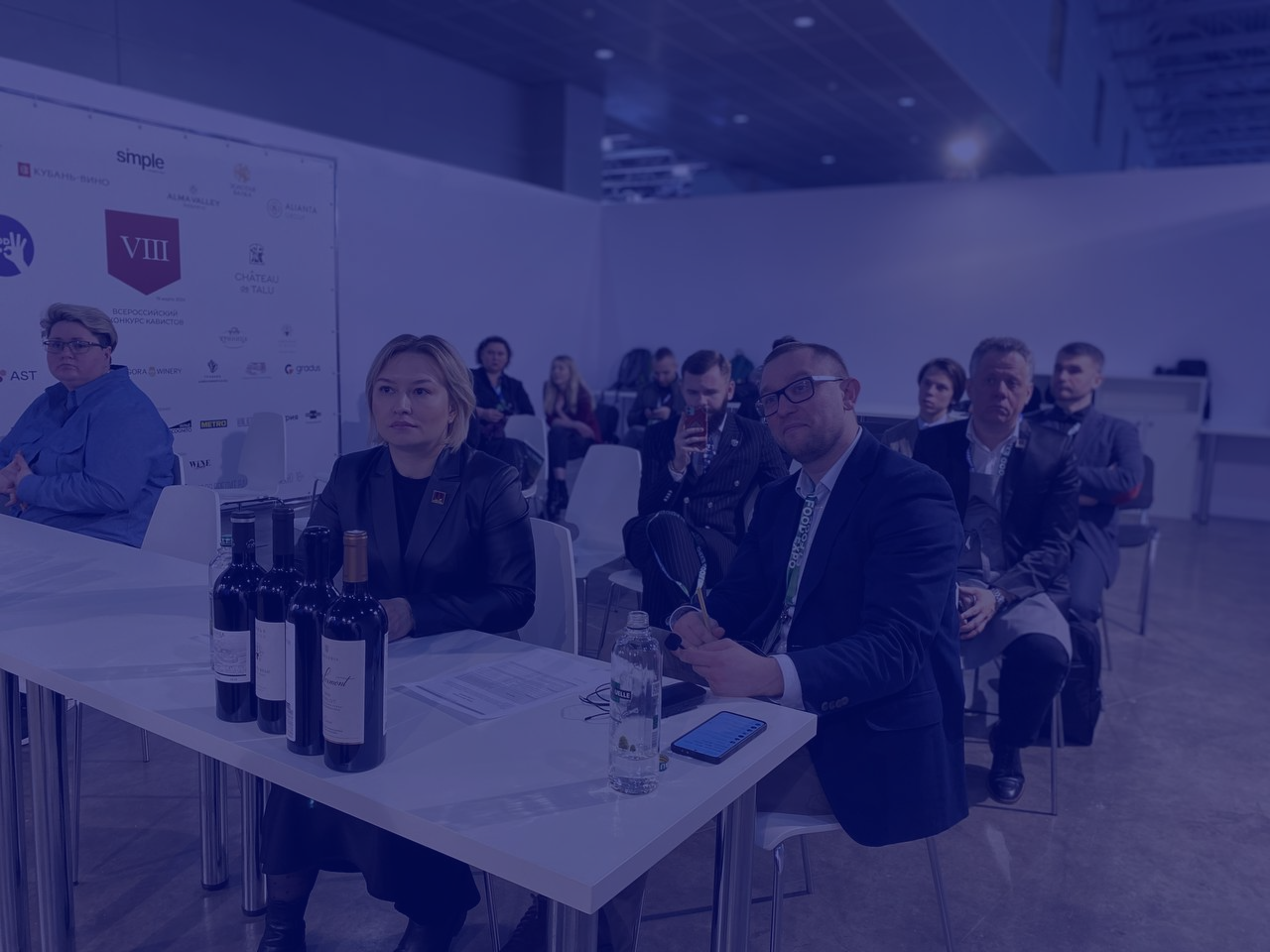
A unique approach to the growth of wine sales
5 min

Subscribe to the blog news
Articles, cases and checklists on digital marketing from leading market experts
Соц сети



